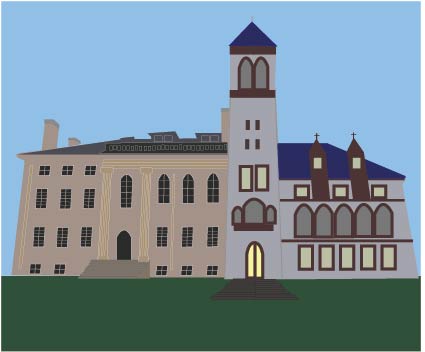
News
Harvard Grad Union Agrees To Bargain Without Ground Rules

News
Harvard Chabad Petitions to Change City Zoning Laws

News
Kestenbaum Files Opposition to Harvard’s Request for Documents

News
Harvard Agrees to a 1-Year $6 Million PILOT Agreement With the City of Cambridge

News
HUA Election Will Feature No Referenda or Survey Questions
Harvard Discusses Development Projects in Annual Town Gown Report

Harvard presented its infrastructure projects, sustainability initiatives, and neighborhood engagement initiatives to the Cambridge Planning Board at the annual Town Gown report meeting Tuesday.
The Town Gown meeting is an opportunity for the planning board to conduct an "annual joint review of university and community needs and plans,” according to the Cambridge municipal website. Each year, universities in Cambridge, including Harvard, are required to submit a report to the Community Development Department outlining their recent projects and future plans. These institutions typically present their Town Gown reports to the Planning Board in early February.
The term “town gown” describes the relationship and coexistence of the non-academic — “town” — and academic — “gown” — populations in cities with university campuses.
On Tuesday evening, Harvard presented its report along with MIT and Lesley University.
Harvard’s director of planning services, Alexandra J. Offiong, gave an overview at the meeting of the University’s recent infrastructure projects, including the completed renovations of Lowell House, Robinson Hall, Schlesinger Library, and Gutman Library.
She also updated the board on the new School of Engineering and Applied Sciences campus in Allston and shared progress reports on future projects like the planned renovation of Randolph Hall, Russell Hall, and Westmorly Court in Adams House.
Offiong emphasized Harvard’s goal of fostering inclusivity in Cambridge and advancing its own research and scholarship through its projects.
“Any changes we make to the campus have to align with our campus planning principles,” she said. “We want to be a good neighbor.”
Harvard Chief Sustainability Officer Heather A. Henriksen continued the presentation by outlining the University’s dedication to a “healthier, resilient, fossil fuel-free future.” She said Harvard has set climate goals to be “fossil fuel neutral” by 2026 and “fossil fuel free” by 2050.
Thomas J. Lucey, who serves as director of government and community relations at Harvard, concluded with an update on the University’s engagements with Cambridge public schools.
Harvard currently offers educational programs for elementary school students as well as summer programs for high school students, including the Harvard Crimson Summer Academy and the Cambridge Harvard Summer Academy, according to Harvard’s presentation.
“The takeaway I’d like you to have is that we're in every Cambridge public school,” Lucey said. “So as the student makes his way from grade to grade to grade to grade eventually through high school, he or she will be touched by a Harvard program multiple times in that process.”
During the question and answer session, planning board member Louis J. Bacci Jr. said the universities could do a better job advertising their school programs to reach a more diverse demographic.
“I talked to a lot of people who know very little of the programs that are available in the city,” he said. “Sometimes the claims are that these are very cliquey and people associated with the universities know about these more than the intended communities.”
Planning board member Corinne Espinoza said Cambridge area universities should work together and build off of each others’ programs to offer services to city residents.
“What if Lesley, Harvard, and MIT all allowed Cambridge residents to board your shuttles for free?” she asked. “What would that mean for our community?”
Espinoza ended the night by reminding Harvard, MIT and Lesley to consider if their institutional values matched Cambridge’s values as a “sanctuary city” that prioritizes equity and justice.
She encouraged each university to consider renaming streets and buildings named after slave owners and requested that each university share how much they have invested in the prison and fossil fuel industries.
“I want to encourage you to let us know either how you are looking at those topics or whether you have plans to look at those topics,” Espinoza said.
—Staff writer Charles Xu can be reached at charles.xu@thecrimson.com. Follow him on Twitter @charles_xu_27.
Want to keep up with breaking news? Subscribe to our email newsletter.
Most Read
- Trump Administration To Review Billions in Federal Funding to Harvard
- Fulbright Funding Freeze and Silence from Harvard Leaves Scholars with Questions
- I Was Hillel President. Trump Claims His Funding Cuts Help Jews — He’s Wrong.
- 17 Senators Call for Release of HMS Researcher Kseniia Petrova
- Center for Middle Eastern Studies Leaders Dismissed for Alleged Lack of Balance in Events on Palestine, Harvard AAUP Says
